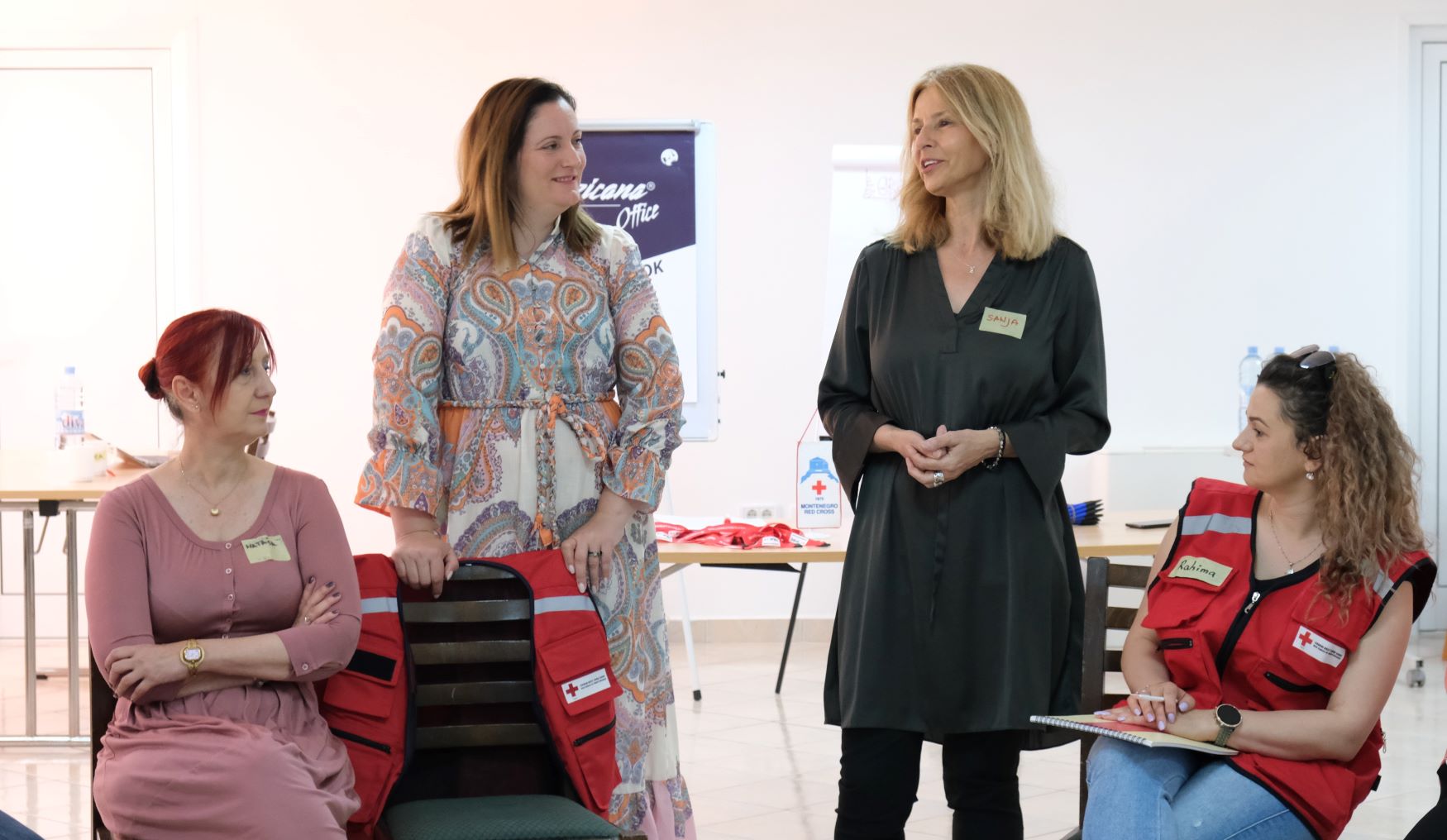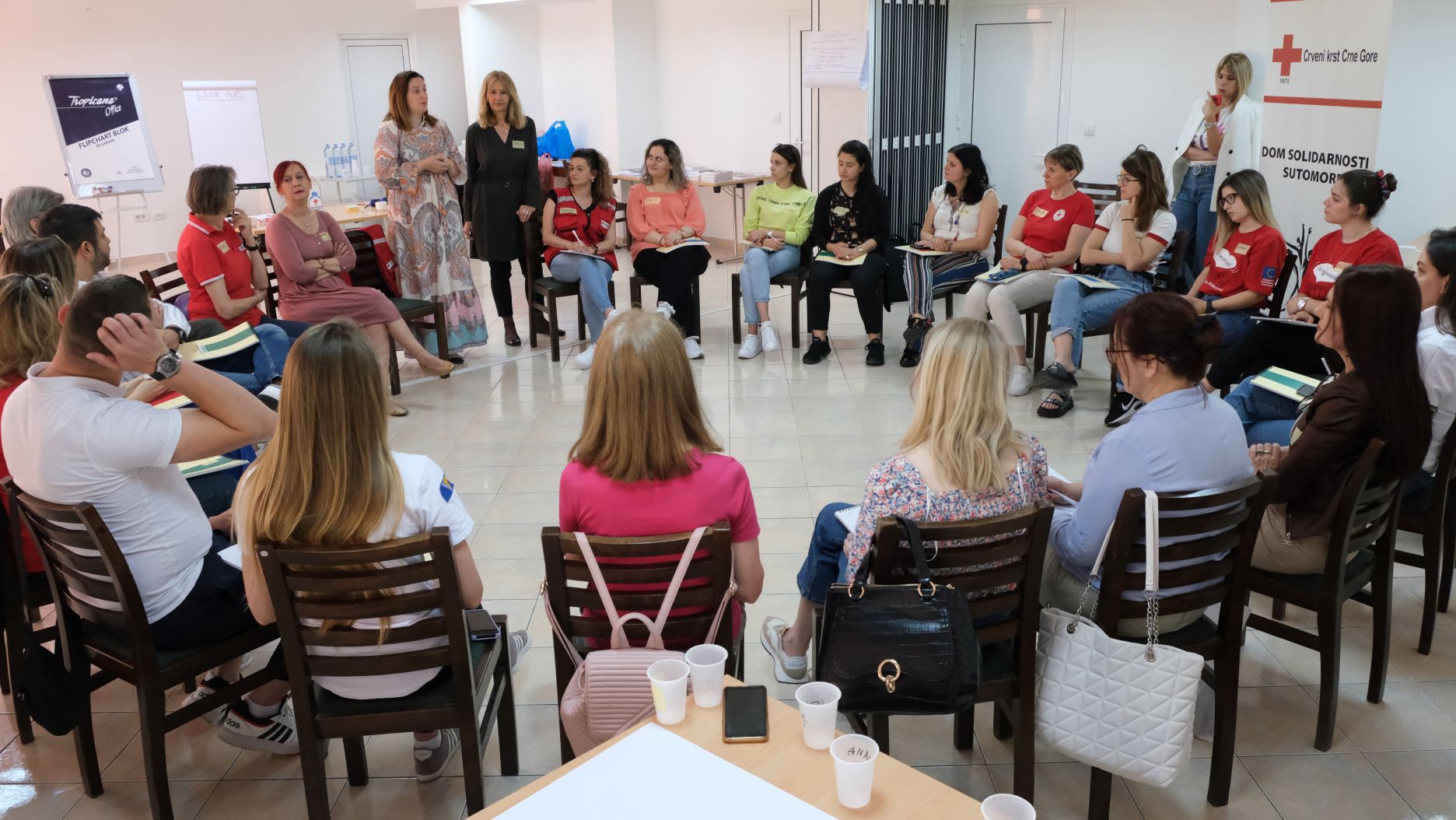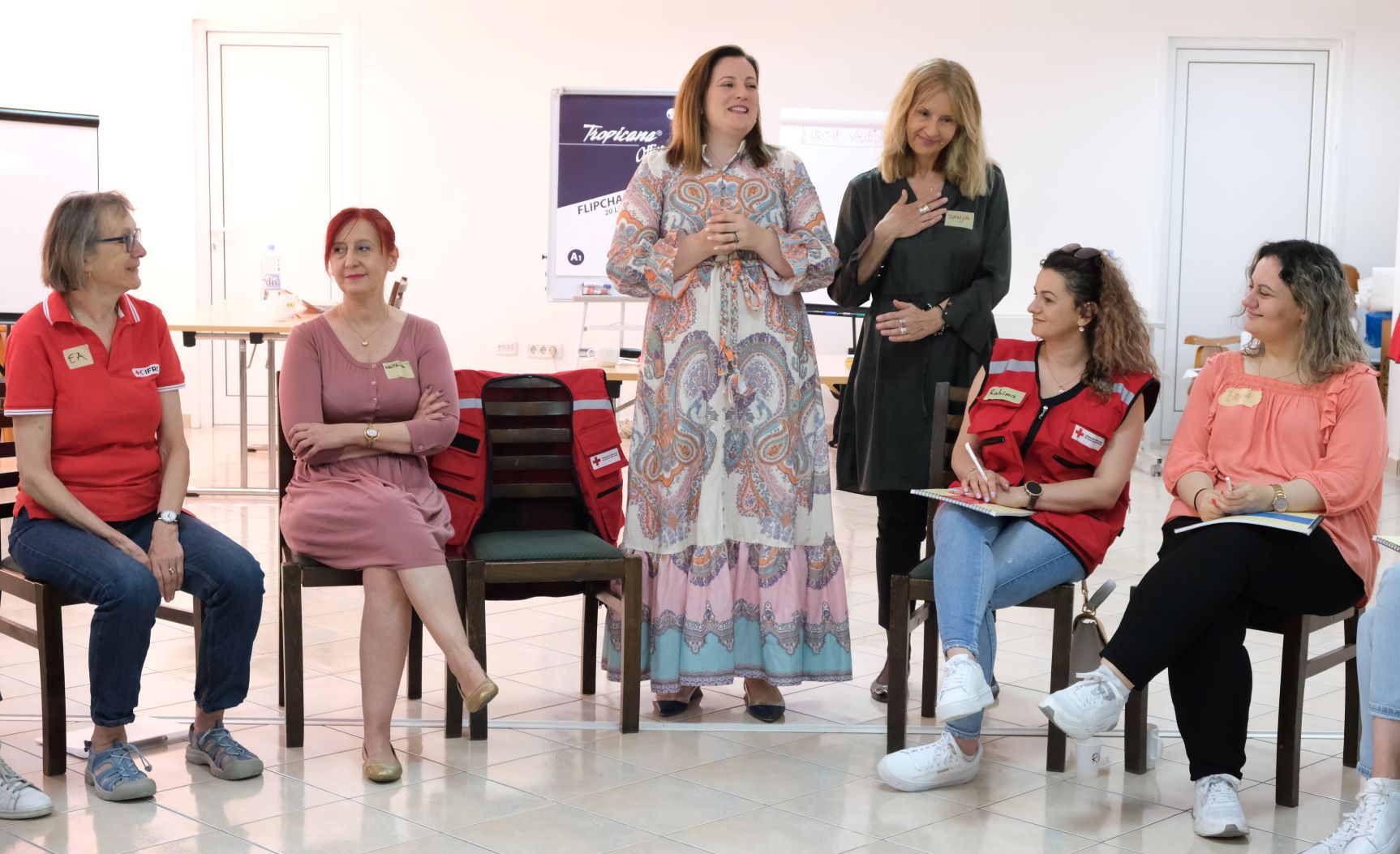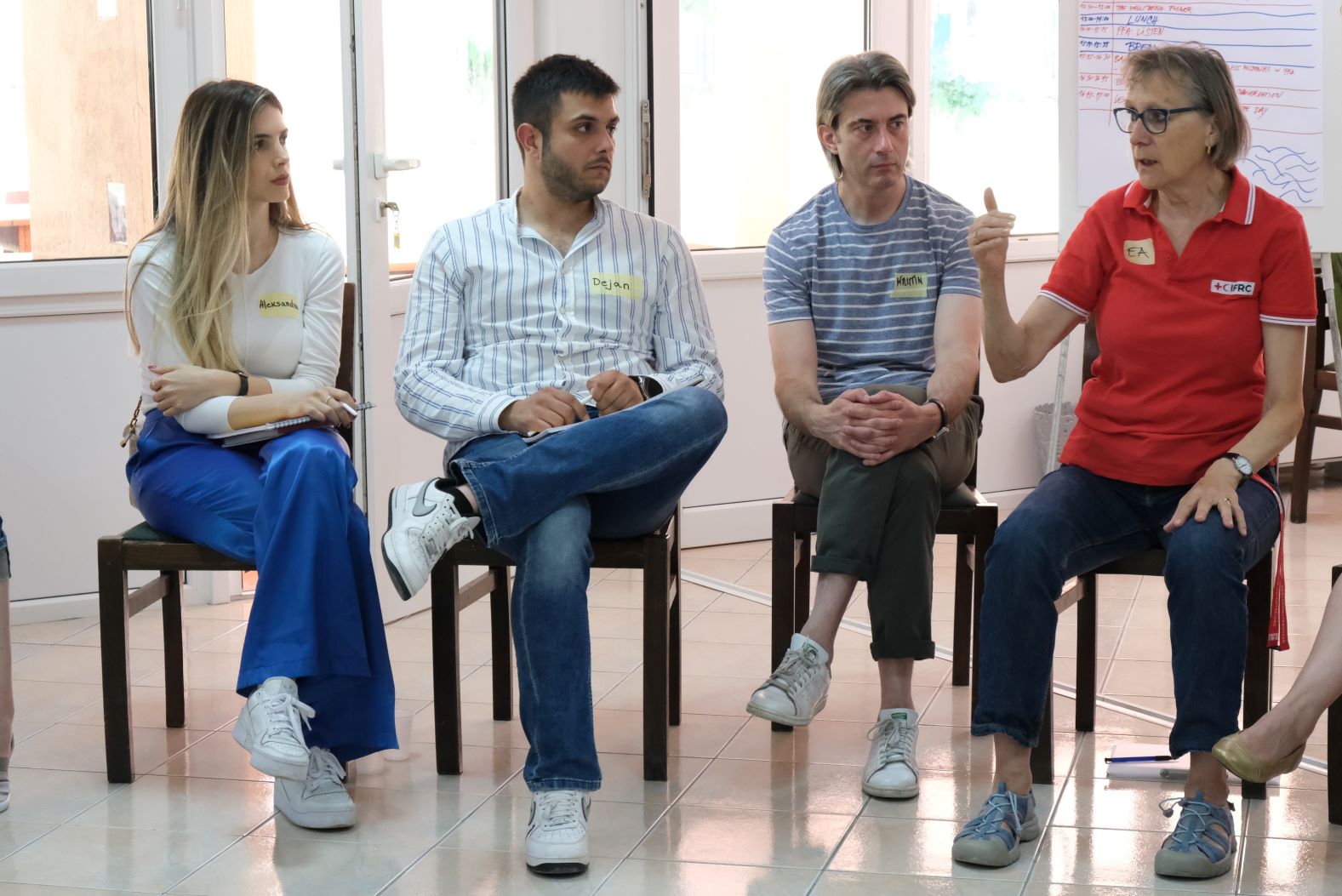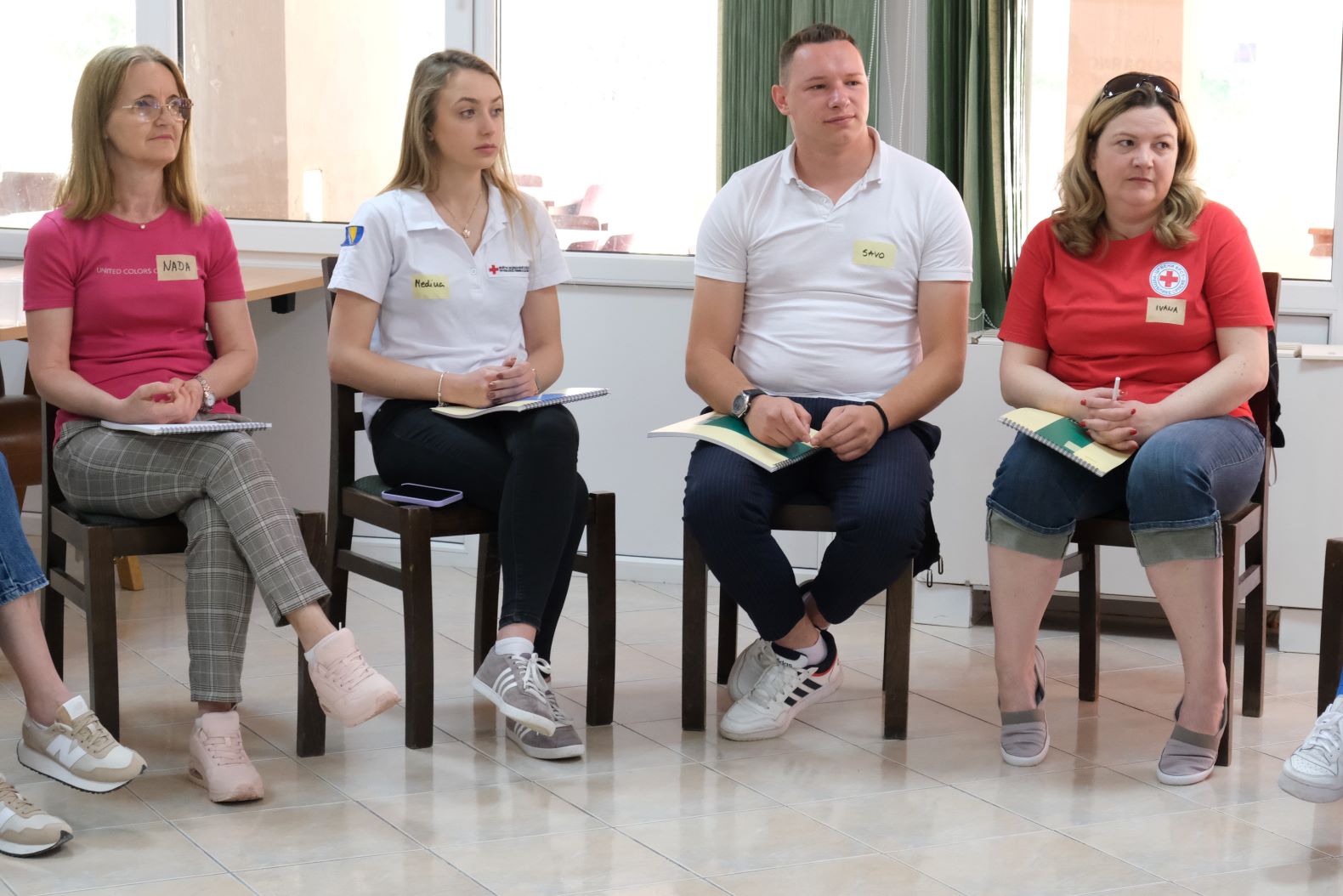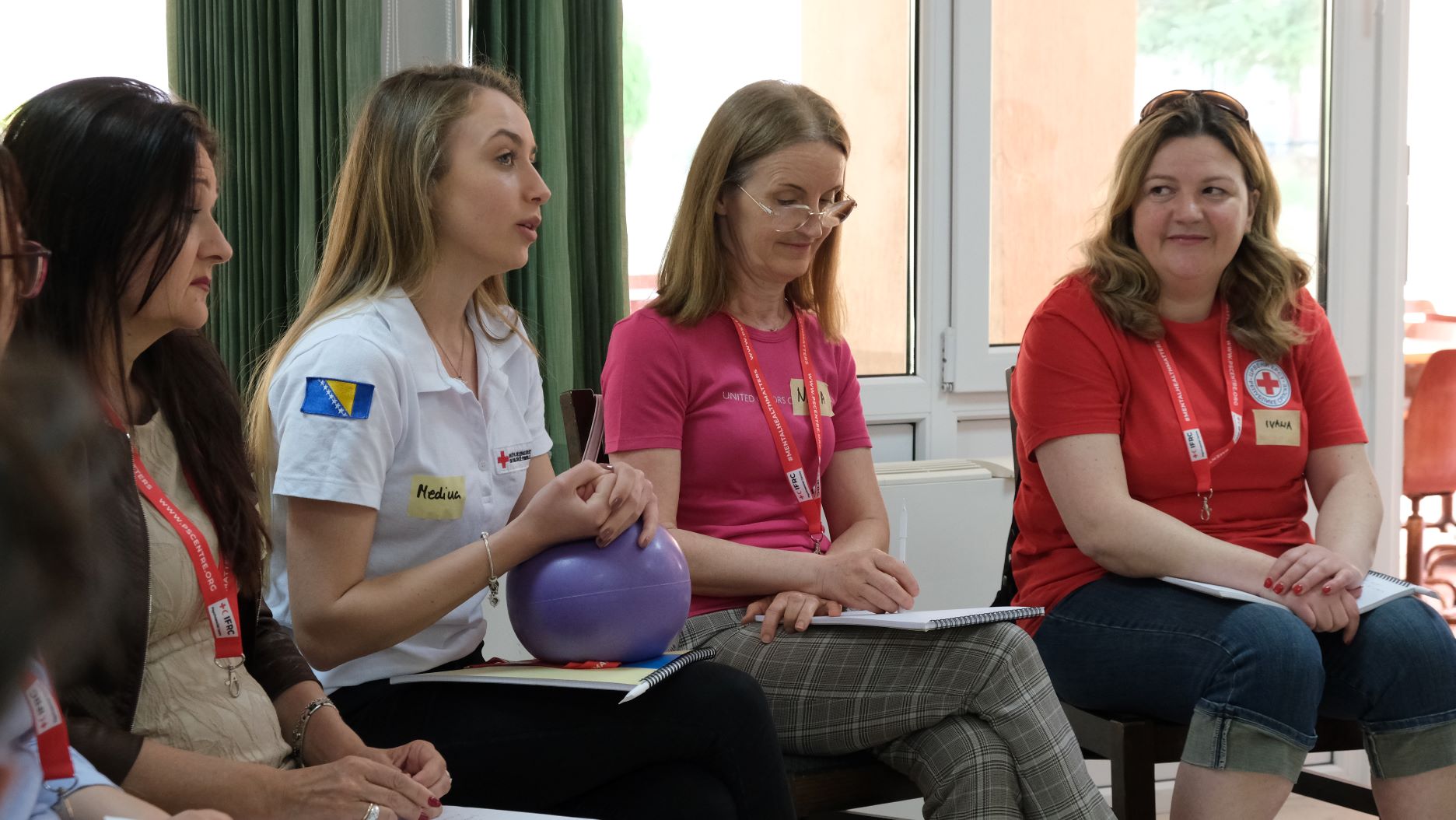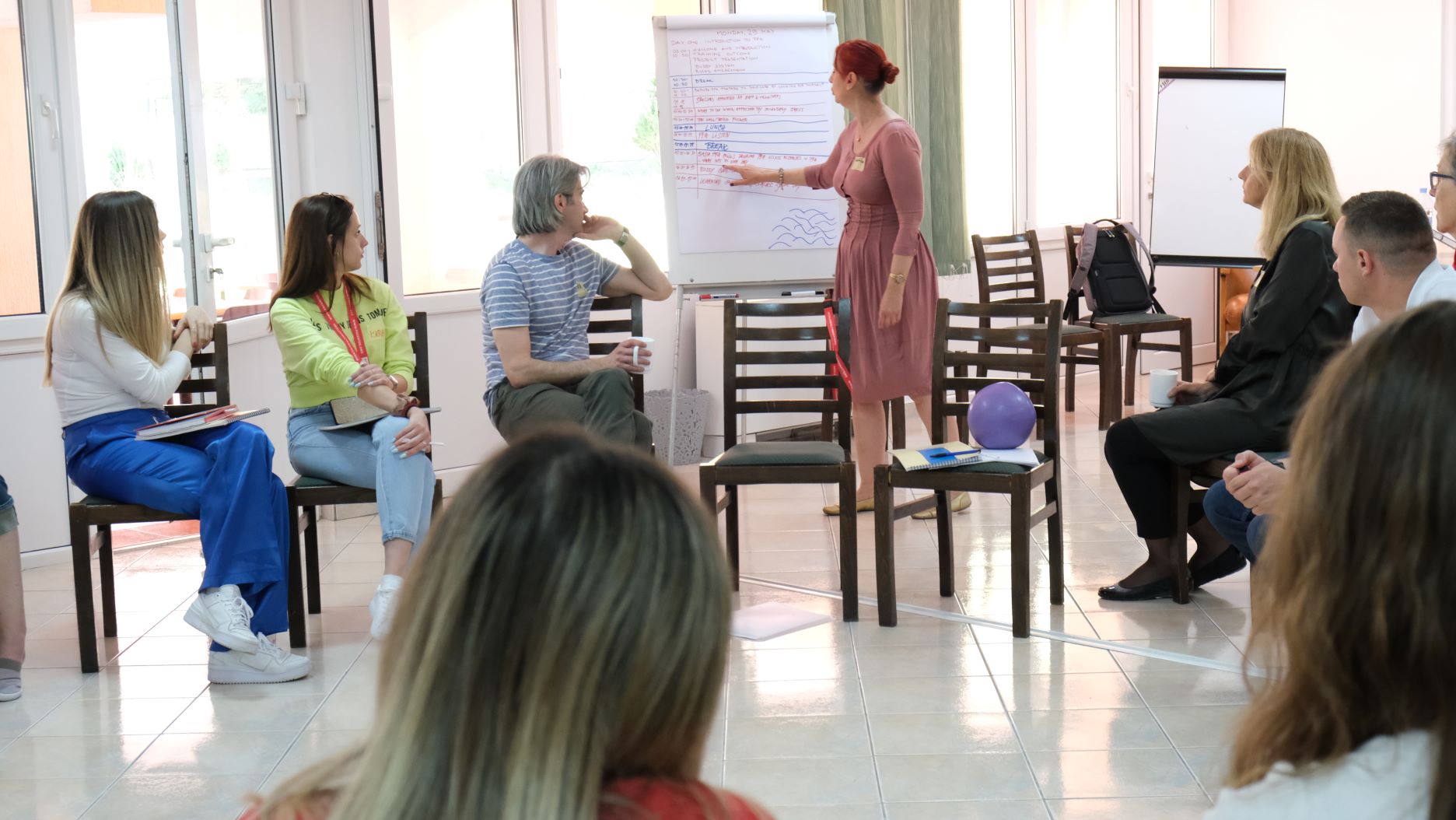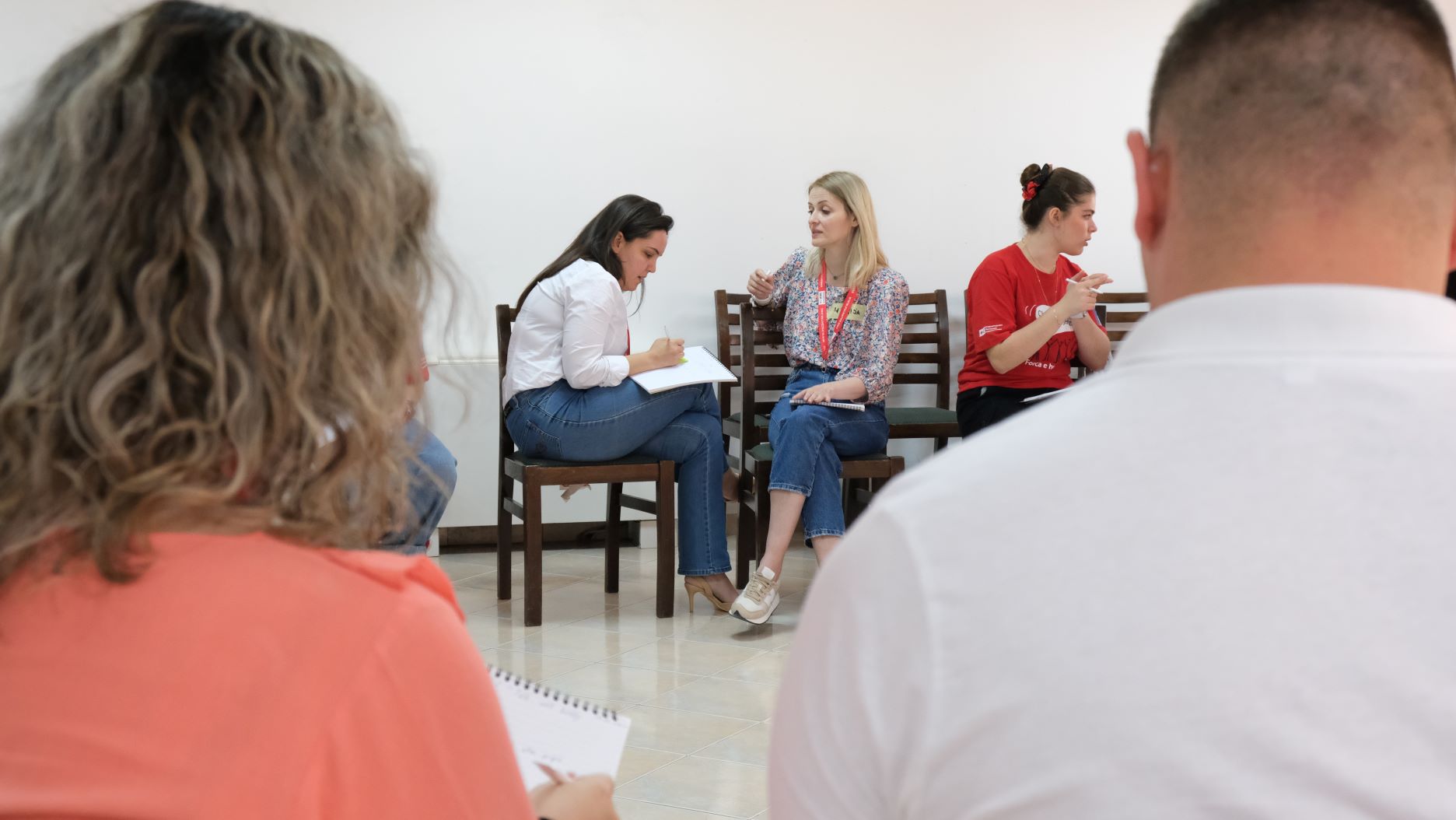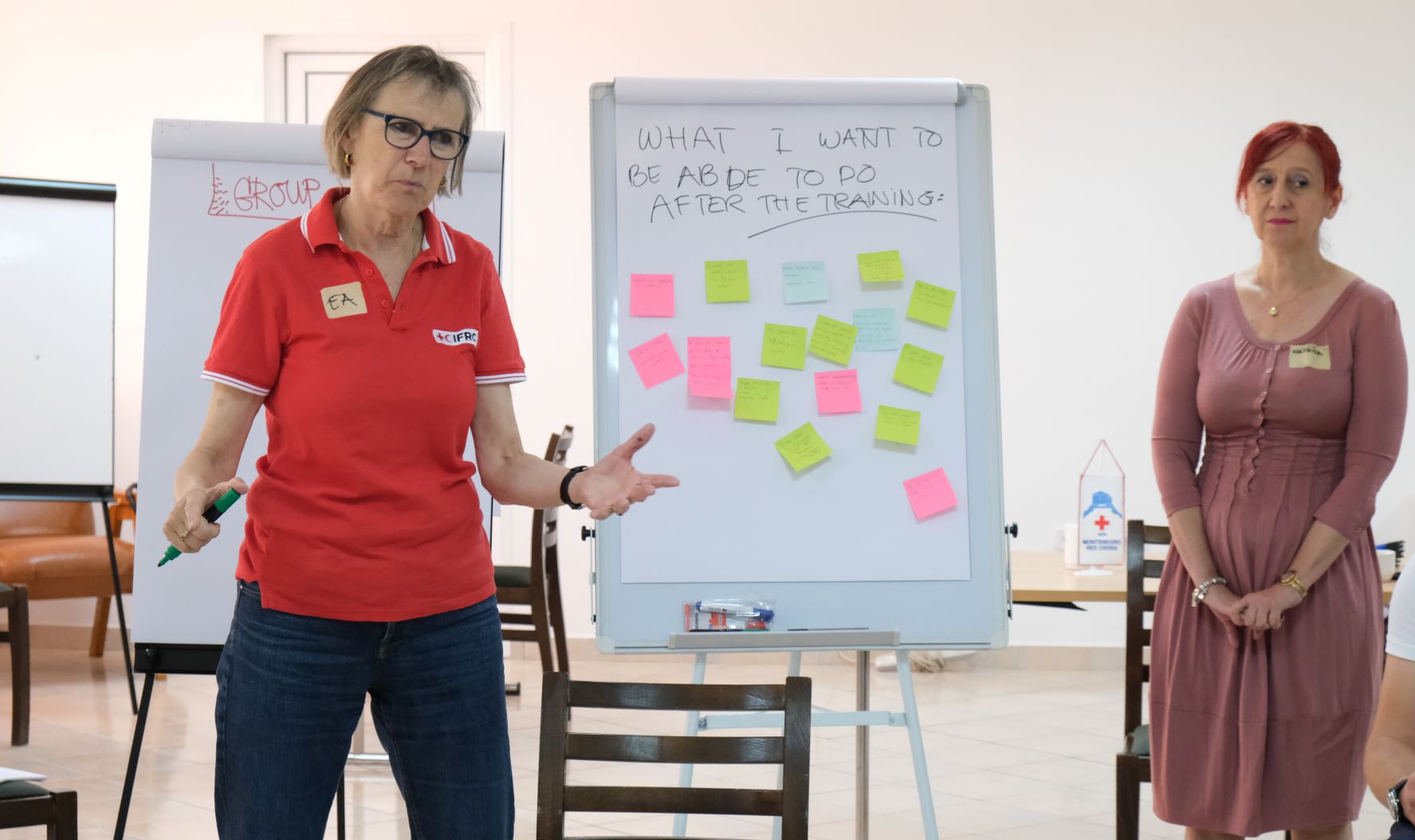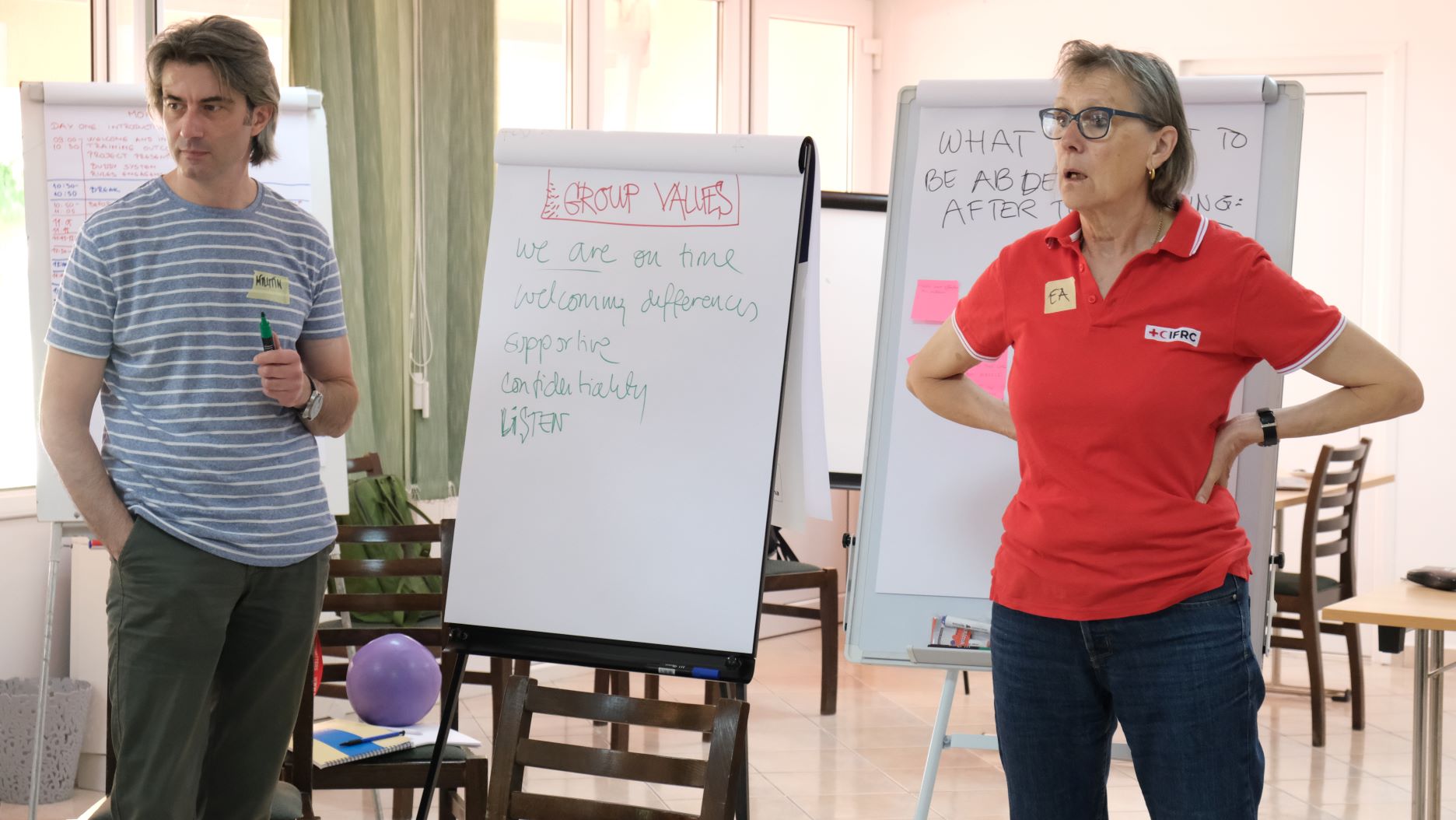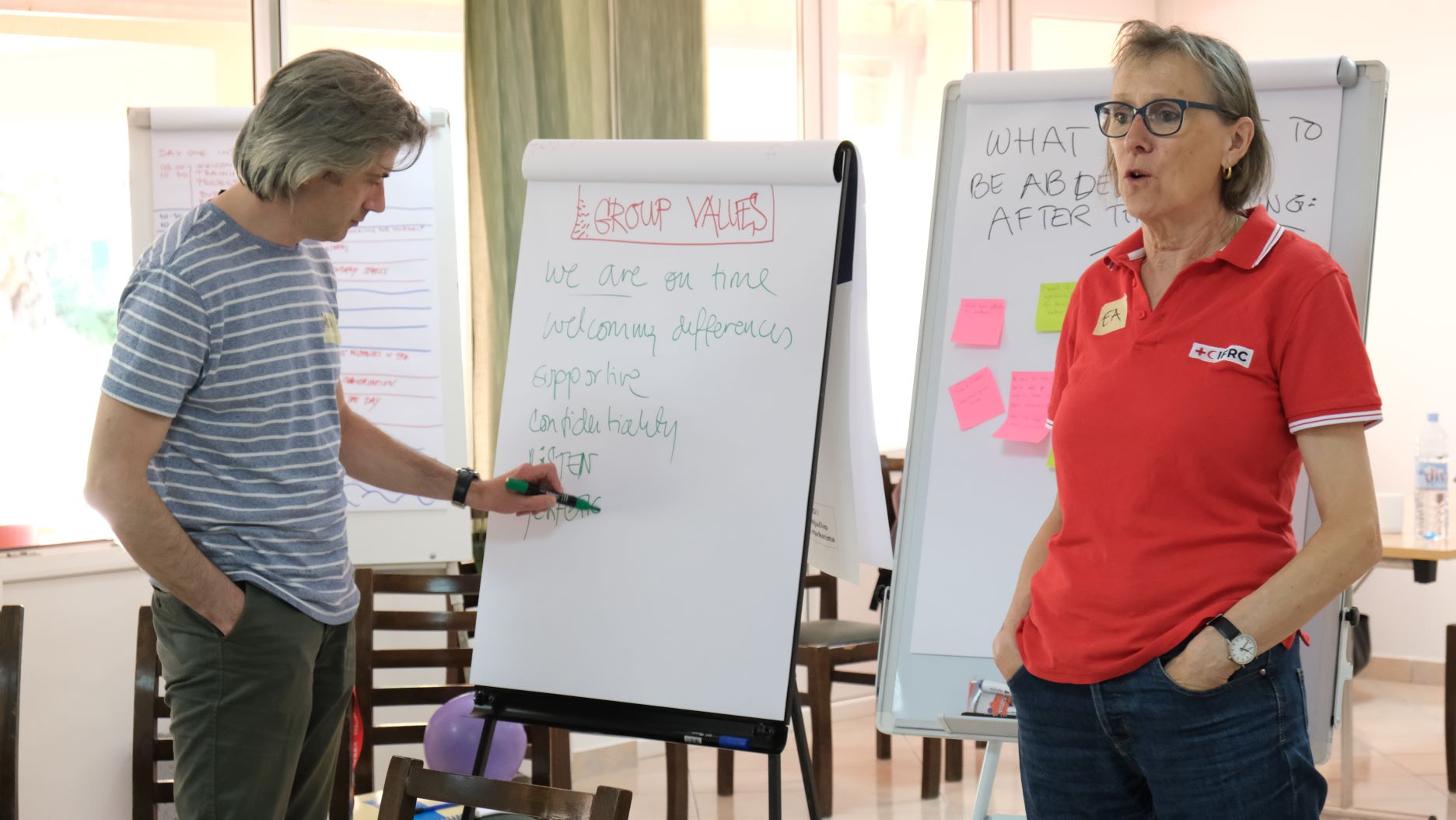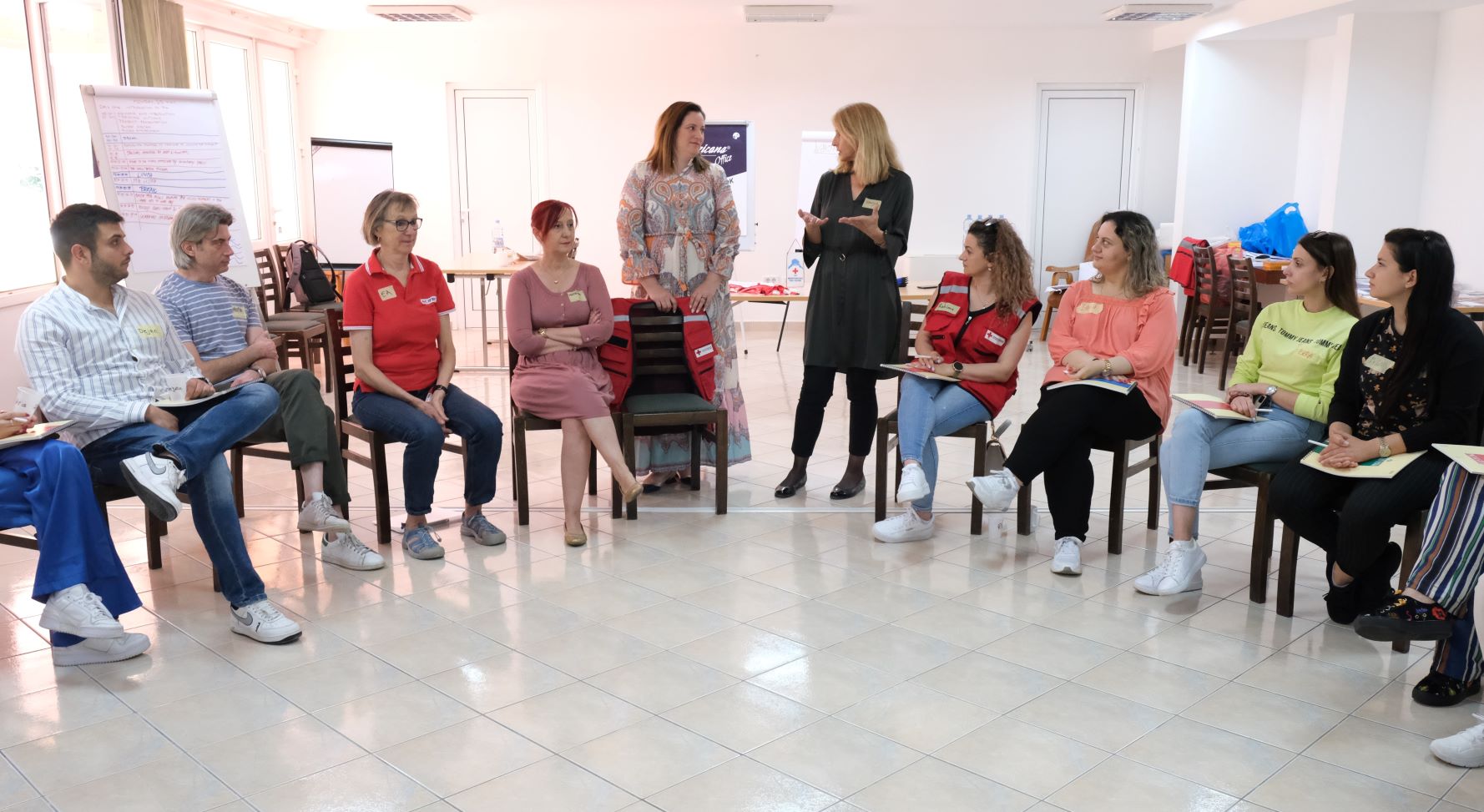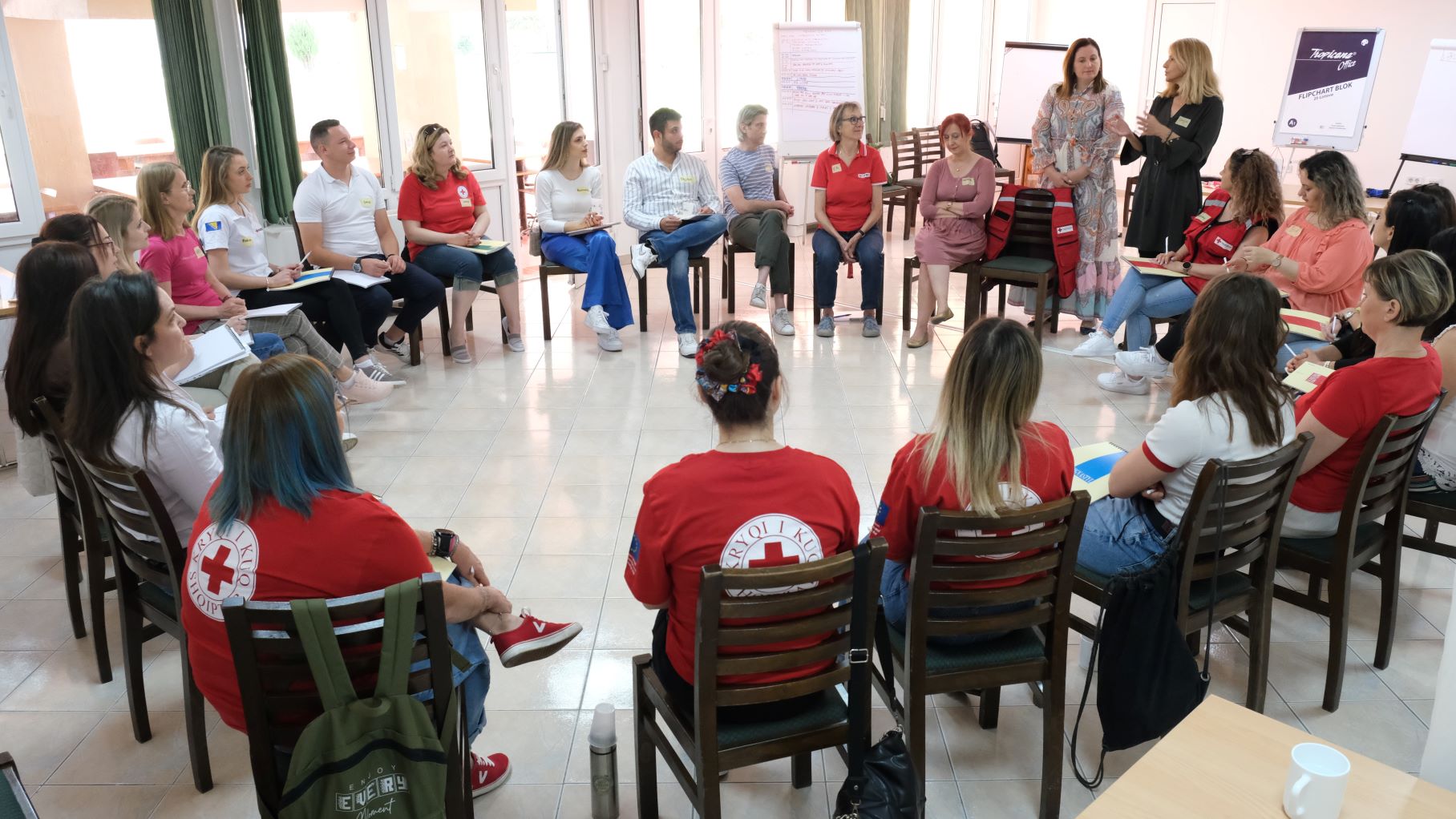Psychological First Aid - Training of Trainers
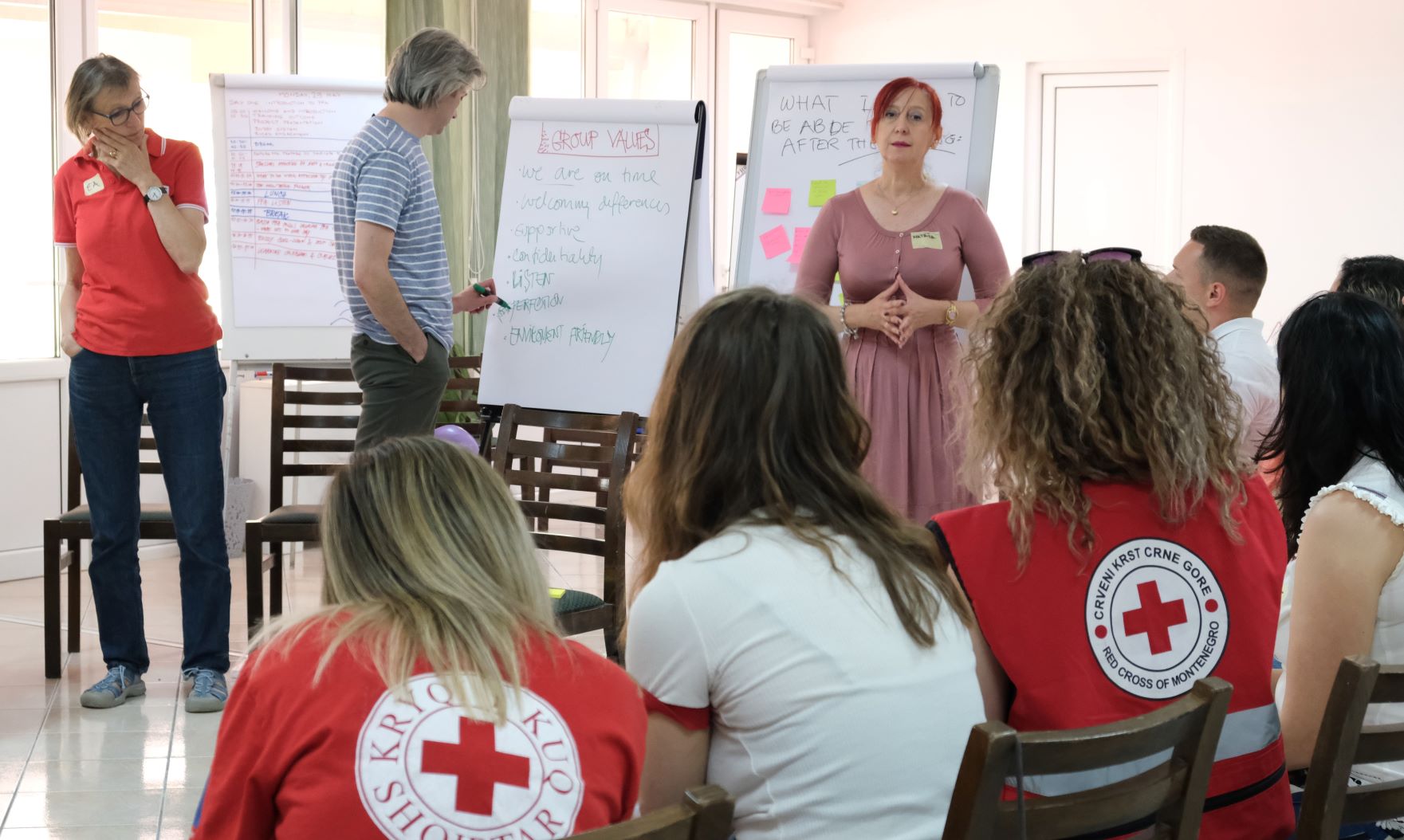
In the period from May 29 to June 2, 2023, a training for trainers on the topic of Psychological First Aid was held in Sutomore, Montenegro. The training was intended for the National Red Cross Societies from Southeast Europe and aimed at strengthening the capacity in providing psychological first aid and psychosocial support and improving mental health.
Mental health problems are a leading cause of suffering and disability in the Europe Region. The specific problems are diverse in nature but touch all ages and social groups. They include a surge of diseases of despair, the persistent prevalence of depressive and anxiety disorders, the growth of self-harm and suicide, and the unmet needs of people with dementia or autism spectrum disorder. Early and appropriate mental health and psychosocial support is important to prevent distress from developing into more severe conditions and that children and youth face particular risks if their mental health and psychosocial needs are not addressed early and acknowledging that most people show resilience and do not develop mental health conditions provided they have access to basic services and family-and community-level resources. In many cases the suffering of individuals and their families is compounded by stigma, discrimination and social exclusion, making the way in which society looks at people with mental health problems a part of the problem itself. Despite the often limited resources and funds, NSs across Europe region with support of the components of the Movement are delivering a wide range of MHPSS services and activities in accordance with their respective mandates and auxiliary roles.
The training covered the following key topics:
- Psychological first aid as a skill set in the context of community-based MHPSS
- Approaches in psychological first aid in displacement related contexts
- Provision of psychological first aid based on participants’ own case
- Basic principles of community-based interventions relevant for psychological first aid
- Displacement related stressors and reactions
- Loss and grief and psychological first aid
- A trauma informed approach in psychological first aid
- Understanding of transgenerational trauma in displacement and armed conflicts
- Principles of adult learning, peer support systems and safe feedback
- Layers in conversation and how to integrate these in psychological first aid
- Complex reactions and situations
- Awareness of the need for and importance of self-carewhen helping others
The training featured the following trainers: Ea Suzanne Akasha, IFRC PS Centre technical advisor, Milutin Vracevic and NatasaTodorovic, Red Cross of Serbia, Sanja Pupacic MHPSS delegate, IFRC Sarajevo Cluster Delegation.
The training was based on combined approach, where the participants had to familiarize themselves with the materials before the training and, during the five-day training, in addition to the interactive sessions, they had to prepare their own sessions under the supervision of the trainer, and they received feedback from other participants as well as the trainer. The training was attended by representatives of: the Red Cross of Serbia, the Red Cross of Albania, the Society of the Red Cross of Bosnia and Herzegovina, the Red Cross of the Republic of North Macedonia, the Red Cross of Bulgaria and the Red Cross of Montenegro.
For the first time, a part about transgenerational trauma was conducted at a training, and that part was led by educators from the Red Cross of Serbia. This training was also a capacity building exercise within the project “Strengthening resilience of older persons and persons with disabilities during the COVID-19 crisis and future disasters”
One of the key projects that the training builds on is the EU-funded “Strengthening resilience of older persons and persons with disabilities during COVID-19and future disasters” led by the Red Cross of Serbia. It includes also the National Societies of Albania, Bosnia and Herzegovina, Montenegro and North Macedonia. The project aims to preserve mental health and enhance resilience of older persons, persons with disabilities, as well as other persons affected by disasters such as displaced persons, through remote PSS services provided in 30 telephone centres, as well as face-to-face support.
